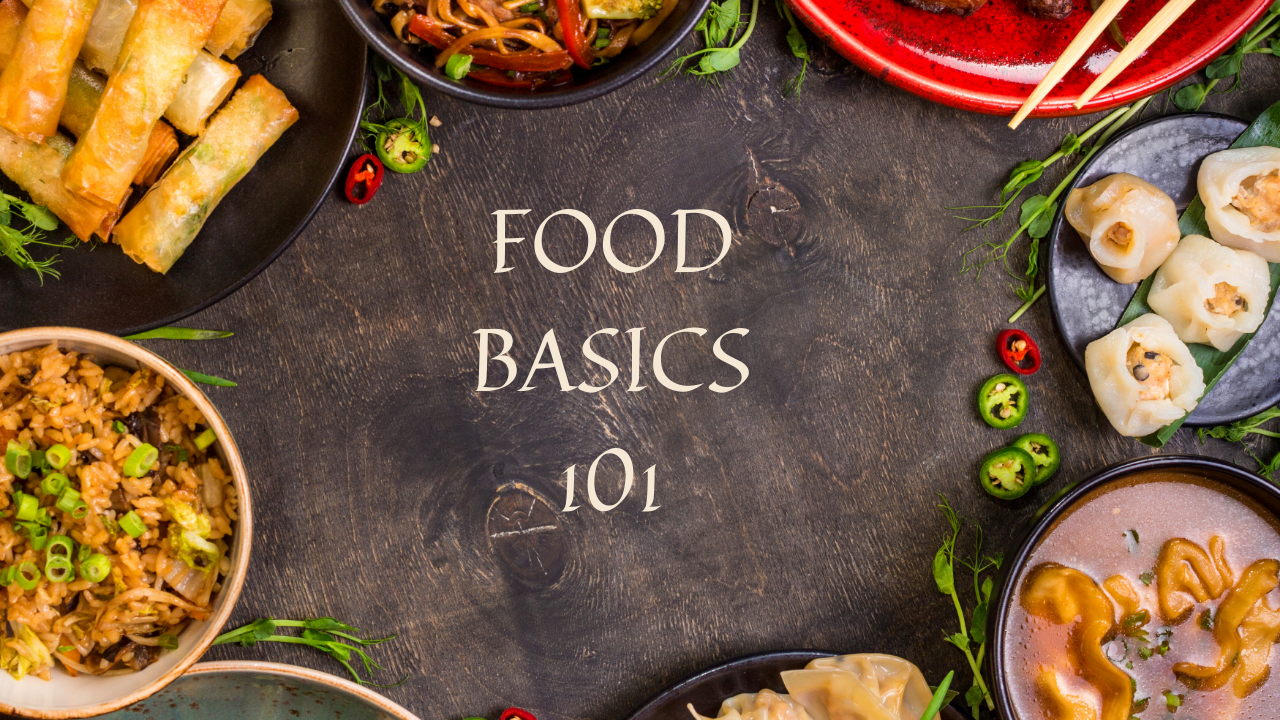3 Chinese Dietary Principles You MUST KNOW

If you are tired of figuring out what to eat to be "healthy" or perhaps have spent thousands of dollars working with dietary consultants to figure out how to 'heal' your guts and still don't feel right, stayed tuned. Even more frustrating, perhaps Celiac, Crohn's, or Colitis has been your battle? Either way, at no point should we worry and obsess over our food because that in and of itself weakens our digestion. Check out my blog to Discover How Your Emotions Directly Affect Your Body for more information on that.
First let's agree to refrain from labeling our food as healthy or not healthy, full of antioxidants or not, nutrient dense or not, high in vitamin this or that or not...you get what I mean. Rather, Chinese medicine looks at food in a different way and is not a generic kind of diet therapy. There are 3 principles that Chinese dietary therapy considers when deciding what is best to put in your mouth and this is not static. It considers our constitution, our circumstance, and can shift as need be at any given moment.
There are 3 principles that Chinese dietary therapy considers when deciding what is best to put in your mouth and this is not static. It considers our constitution, our circumstance, and can shift as need be at any given moment.
The 3 principles are:
- Flavour
- Temperature
- Direction (that your Qi goes after eating certain foods)
What is the flavour of any given food - is it pungent, sweet, bitter, sour, or salty? Certain flavours perform certain actions in the body which I will go over very shortly. AFTER you eat and digest different foods, what temperature is created from that food? Is it more cooling or more warming?
AFTER you eat and digest different foods, what temperature is created from that food? Is it more cooling or more warming?
For example, garlic and onions, while they are very healthy, after they've been digested, they create warmth in the body. This warm may be helpful if someone is always cool but because heat rises, not so helpful for matters of the diaphragm upwards such as if someone is experiencing acne or having difficulties sleeping or even if they are hot tempered.
Another example, salads, while they are very healthy, they are typically cold in nature. If someone is already feeling sluggish, heavy, cold, and experiencing abdominal pain, a raw salad would not be a helpful choice. Whereas if someone is experiencing a lot of heat in their body, this could be just the right fit.
4 important factors that influence whether food will be warming or cooling include:
1) Plants that take longer to grow, like root vegetables, tend to be more warming than fast growing foods, like lettuce and spinach.
* When food is chemically fertilized and therefore forced to grow more quickly, it tends to be more cooling than their naturally grown counterparts.
2) Foods with higher water content, like melons and cucumber, tend to be more cooling.
3) Dried foods are more warming than their fresh counterparts.
4) The cooking and preparation method of food also influences whether food is going to be more warming or cooling. For example, raw or boiled food with higher water content, and shorter cooking times will be more cooling than food that is cooked longer, like slow cooked, stewed, baked or roasted foods.
For example, raw or boiled food with higher water content, and shorter cooking times will be more cooling than food that is cooked longer, like slow cooked, stewed, baked or roasted foods.
Another couple simple applications of this is, if you have a fever you might want to choose to eat more cooling foods and cook your food for a shorter period of time whereas if you are chilled and cold, you should eat more warming foods and cook it for a longer period of time.
Seasonally speaking, in the winter, it is generally recommended to prepare more soups, stews or slow cooked and baked foods to infuse warm into whatever you are eating, whereas in the summer you may eat more raw foods and quickly sauté or steam your food so as to infuse less warmth into your food but make it more easily digestible than only eating raw foods. Beside who wants to hover over a hot stove in the summer!?
The direction of where our Qi (energy) goes after digestion is very important. Certain foods also induce certain movements in the body once they have been digested. While some emphasize upward and outward movements, others emphasize downward and inward movements. For example and going back to the flavour of our food, pungent and sweet foods create an upward and outward movement of energy in the body. Having said this, it would be wise to stay away from these foods if you have something like a cough where the Qi is already going up and out.
For example and going back to the flavour of our food, pungent and sweet foods create an upward and outward movement of energy in the body. Having said this, it would be wise to stay away from these foods if you have something like a cough where the Qi is already going up and out.
What else rises? Yes, heat rises! So naturally warming foods, which also include pungent, sweet, as well as spicy foods, all encourage our Qi to rise and move up and out.
Bitter, sour and salty flavours, which are more cooling, create a downward and inward movement of energy in the body so might be a better choice for when you have a cough. They are also helpful for clearing mucus, stimulating the appetite, and even good for nausea and or vomiting, where the energy here is pathologically moving upward.
Asian cuisine is often something we, as westerners, crave and feel good after eating. This is because there is some basic principles that go into food preparation and cooking that more specifically consider our health, our constitution, and the season we are in. So what do we do next, just start experimenting and applying the principles. In the northern hemisphere we are in a cold season so let's eat less raw foods and begin infusing our food with heat by stewing it, baking it, slow cooking it. Also and especially before your benefits run out at the end of the year, see a Registered Acupuncturist to help more specifically guide you with what to eat based off a thorough assessment of your unique constitution.
So what do we do next, just start experimenting and applying the principles. In the northern hemisphere we are in a cold season so let's eat less raw foods and begin infusing our food with heat by stewing it, baking it, slow cooking it. Also and especially before your benefits run out at the end of the year, see a Registered Acupuncturist to help more specifically guide you with what to eat based off a thorough assessment of your unique constitution.
Learn more about yourself or a family member by reading up on the other blogs I have published on my website and don't forget to subscribe to my blog to receive my articles as that are published :-)


